

For some, catching Covid-19 doesn’t result in a nasty two-weeks-and-you’re-done illness.
Some people across the country – and the world – struggle with debilitating symptoms months or even years on, as part of a little-understood chronic condition called Long Covid.
But what exactly do we know about Long Covid so far, and what are the symptoms?
What is Long Covid?
It is a nickname given to a post-viral condition called Post Covid-19 Syndrome.
This is essentially the term for a continuation of Covid-19 symptoms, or perhaps the addition of new symptoms, more than 12 weeks after your initial Covid-19 symptoms first began.
According to the NHS, most people who catch the virus will recover from their symptoms in four weeks.
If your symptoms last between four and 12 weeks, then it’s what’s known as Ongoing Symptomatic Covid – this can also sometimes be referred to as Long Covid.
For those unlucky enough to continue experiencing ill health weeks or months after the expected recovery time, it could be a possibility.
If you suffer with Covid-19 symptoms for more than four weeks the you should book to see your GP.
What are the symptoms?
There’s a long list of possible symptoms of Ongoing Symptomatic Covid, so brace yourself.
Extreme fatigue, feeling short of breath and having ‘brain fog’ are some of the most commonly reported symptoms.
Unfortunately, anosmia – aka the loss (or change) of your sense of smell – is another frequent symptom.
This is the full list of potential symptoms, according to the NHS:
- Fatigue (or extreme tiredness)
- Shortness of breath (or breathlessness)
- Cognitive impairment (such as ‘brain fog’, memory issues, or the inability to concentrate)
- Anosmia (loss of smell, or change to your sense of smell)Fever (high temperature)
- Cough
- Sore throat
- Chest pain
- Heart palpitations
- Joint or muscle pain
- Feeling numb, or like you have pins and needles
- Disturbed sleep
- Dizziness
- Headaches
- Earaches
- Tinnitus (ringing or buzzing sounds in your ear)
- Loss of appetite or weight loss
- Abdominal pain
- Diarrhoea
- Nausea
- Skin rashes
- Depression
- Anxiety
Though this list is lengthy, it’s probably not exhaustive.
So, if you’re experiencing any unusual symptoms after having a bout of Covid-19 (even those not listed), seek help from your GP.
Long Covid – what you need to know
Most infections with Covid resolve within the first four weeks.
The recovery time is different for everyone. The length of your recovery is not necessarily related to the severity of your initial illness, or whether you were in hospital.
According to the latest reports, it is most common in people aged 35-69 years, women, people living in more deprived areas, those working in health care, social care, or teaching and education, and those with another activity-limiting health condition or disability.
Common symptoms include:
- Extreme tiredness (fatigue)
- Shortness of breath
- Chest pain or tightness
- Problems with memory and concentration (“brain fog”)
- Difficulty sleeping (insomnia)
- Heart palpitations
- Dizziness
- Pins and needles
- Joint pain
- Depression and anxiety
If new or ongoing symptoms do occur and they are causing you concern, you should always seek medical advice and support.
more recommended stories
 Machine Learning Predicts Early Mortality in IBD Patients
Machine Learning Predicts Early Mortality in IBD PatientsA groundbreaking study published in the.
 BRP Peptide for Weight Loss: A Natural Alternative to Ozempic?
BRP Peptide for Weight Loss: A Natural Alternative to Ozempic?The rising obesity epidemic has fueled.
 Father’s Diet & BMI Don’t Affect Newborn’s Birth Weight
Father’s Diet & BMI Don’t Affect Newborn’s Birth WeightA recent study published in Nutrients.
 Heart, Lung, & Brain Risks Persist in COVID-19 Survivors
Heart, Lung, & Brain Risks Persist in COVID-19 SurvivorsA French nationwide study reveals that.
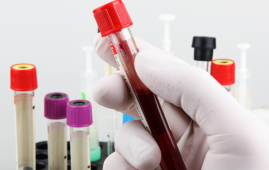 How Fast Are Your Organs Aging? Simple Blood Test May Tell
How Fast Are Your Organs Aging? Simple Blood Test May TellNew research from University College London.
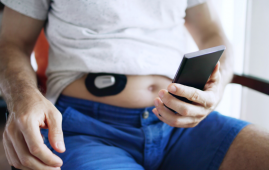 Continuous Glucose Monitors May Mislead Healthy Users
Continuous Glucose Monitors May Mislead Healthy UsersCGMs and Their Expanding Use Originally.
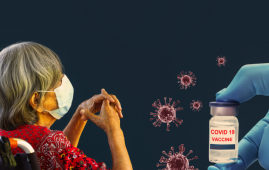 How COVID-19 and Vaccines Differ in Heart Inflammation
How COVID-19 and Vaccines Differ in Heart InflammationA team of international researchers led.
 Can Your Genetics Influence Your Income and Health?
Can Your Genetics Influence Your Income and Health?A New Perspective on Health and.
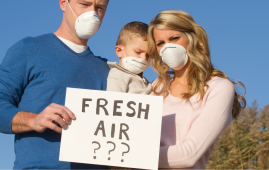 Air Pollution Hurts Brain Health in Just 4 Hours
Air Pollution Hurts Brain Health in Just 4 HoursAir Pollution Blurs the Mind, Impairs.
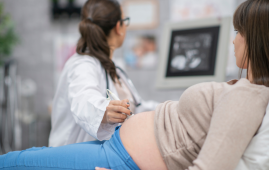 AI Uncovers Hidden Pregnancy Risks for Stillbirth
AI Uncovers Hidden Pregnancy Risks for StillbirthA groundbreaking AI-driven study has identified.

Leave a Comment